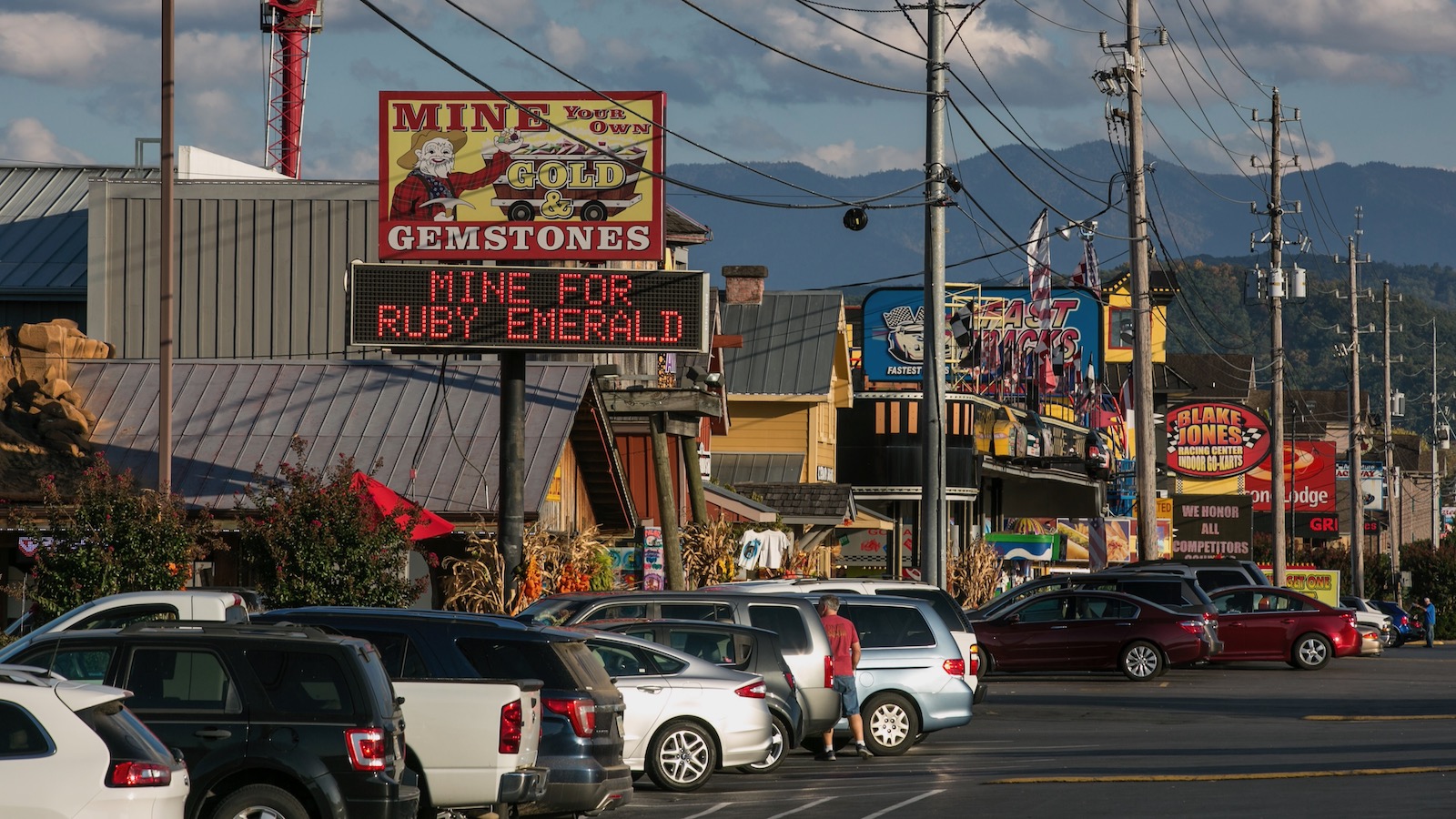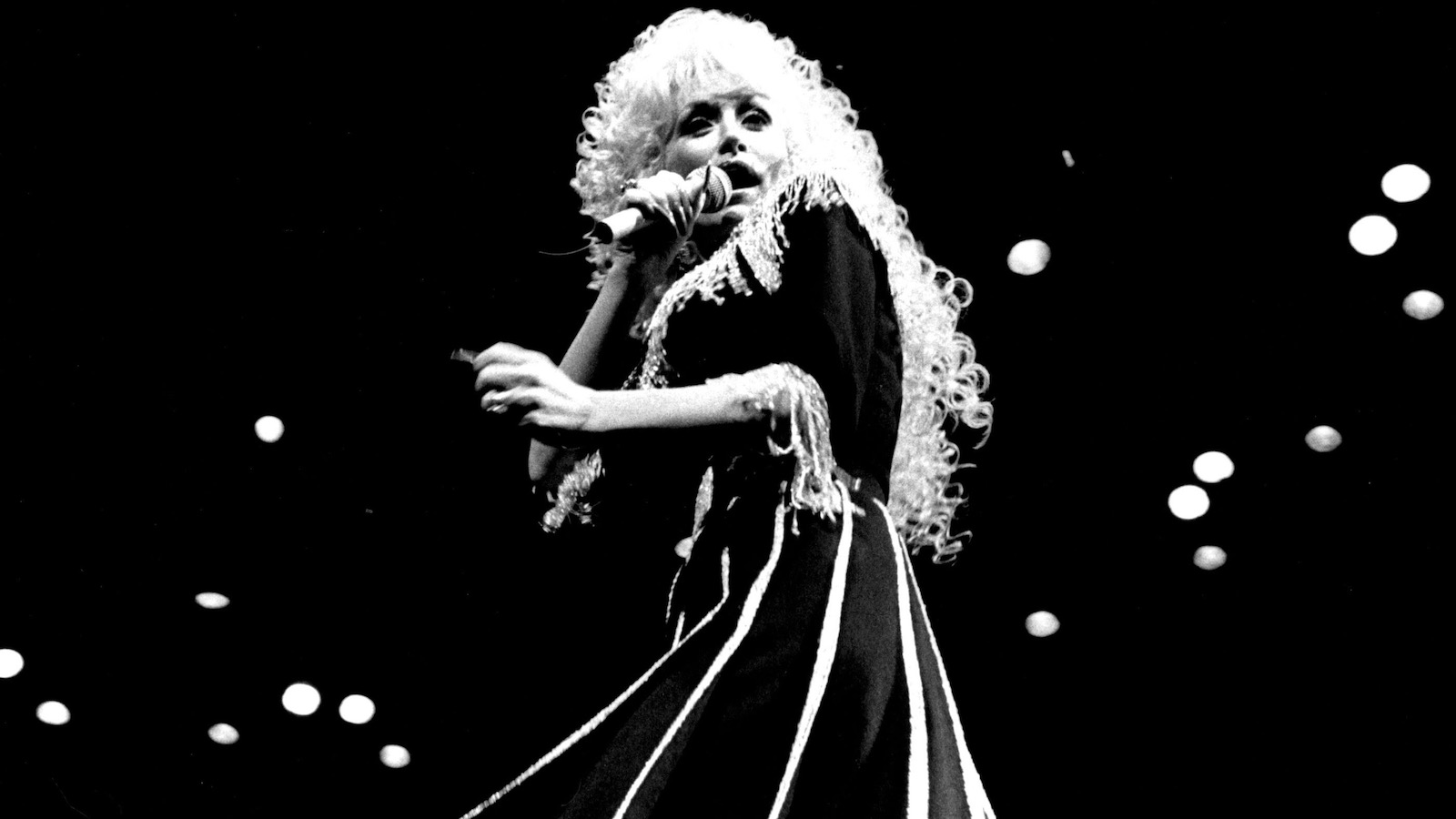In the video for her new song, “World On Fire,” Dolly Parton sits atop a burning world. Blond hair piled and coiffed, her black dress glittering, she looks down into a pit of flames burning the earth. The song rocks a little harder than her usual feathery country oeuvre, and over a driving beat, she lets you know she’s about to get political.
Now I ain’t one for speaking out much
But that don’t mean I don’t stay in touch
Everybody’s trippin’ over this or that
What we gonna do when we all fall flat?
Dolly spends the next four minutes outlining the sorry state of the world, or at least the nation, punctuating it with a rousing chorus:
Liar, liar the world’s on fire
Whatcha gonna do when it all burns down?
Fire, fire burning higher
Still got time to turn it all around.
It’s difficult to say whether Dolly explicitly intended “World on Fire” as a climate song, though people are hearing it as such. But that’s how many of Dolly’s more “political” statements and artistic work come across — they tap into the zeitgeist without making any explicit political statements. Dolly is an expert at this.
The lyrics, which, as usual, she wrote herself, evoke a certain sense of climate anxiety, a suffocating sense of watching the world’s reliable patterns break down into a muddy mess, of watching politicians divide us even as existential threats bear down. There’s something in this song for anyone who feels the government isn’t doing its job, conservative or progressive or in-between – the only difference is who, precisely, they consider the liar:
Don’t get me started on politics
Now how are we to live in a world like this
Greedy politicians, present and past
They wouldn’t know the truth if it bit ’em in the ass.
This is a little forward for Dolly, but, classically, it still avoids naming names or taking sides. Dolly walks a narrow bridge. She is among the last universally beloved figures in pop culture, a vestige of an old version of country music where performers were allowed to be a little campier, and when they sang about killing men just to watch them die or begging a prettier woman not to steal their man. Four years ago, the WNYC podcast Dolly Parton’s America helped propel the iconic singer, who has enjoyed several waves of popularity over the past 50 years, beyond her traditional fan base and into coastal liberal consciousness. The host, marveling at the breadth of the audience, called her “The great unifier.” In her home state of Tennessee, people disagree on a lot of things, but if you say a bad word about Dolly, you might find yourself with a sudden appointment in the parking lot.
She’s given her more socially liberal audience a reason to root for her over the past few decades, though carefully and in her way, never along partisan lines, and rarely in a way that would cause her more conservative audience too much ire.
She’s acknowledged, for instance, the role of the LGBT community in inspiring her stage persona. Yet when Tennessee banned public drag performances, she kept quiet. She publicly attested her support for Black Lives Matter with a spate of other country musicians as artists reckoned with the genre’s long silence on racial justice. Her speaking up came two years after she changed the name of her long-running dinner show from Dixie Stampede to Dolly’s Stampede after much criticism of its Confederate nostalgia. Parton insisted the original name was chosen out of “innocent ignorance.” (This move did divide some fans.)
Even when she does speak out, Dolly never points fingers. Her message is often softly wrapped in statements about love and kindness. “Oh, can we rise above? Can’t we show some love?” she asks in “World on Fire.”
In interviews, Dolly has certainly expressed support for environmental causes, in her down-home oratory style. “We’re just mistreating Mother Nature,” she told National Geographic last year.“That’s like being ugly to your mama.” The natural world is its own character in her music, like lovely scenery entwined with nostalgia in songs like “My Tennessee Mountain Home.”
People in Dolly’s home community of Sevier County, Tennessee, are proud of Dolly as a cultural icon and an ambassador of southern Appalachian mountain culture. But some caution against viewing her as an activist. Jessie Wilkerson, a historian at West Virginia University who grew up in Sevier County, has written at length on her complex feelings about the singer. To her, Dolly’s newfound sainthood is somewhat baffling, and it’s clear that while the singer dabbles in politics, “Dolly Parton is about Dolly Parton.”
“I would encourage people to reflect more on what the Dollywood company does on the ground, in the place where people live, instead of assuming that everything she does is by association perfect,” Wilkerson told me.

Many East Tennesseeans see Dolly as a businesswoman and entertainer rather than a political figure. And of late, her presence has heralded a slow pouring of concrete over the lush forests and soaring mountains they call home. Dolly didn’t make most of her money from her music, even if she has sold more than 100 million records worldwide. The majority of her $650 million fortune comes from the sprawling business empire she’s built in her home county.
In Dolly’s Tennessee mountain home, over the past couple of decades, tiny mountain towns have erupted into a Vegas-like strip of entertainment venues, theme parks and resorts. Together, Pigeon Forge, Sevierville, and Gatlinburg form the gateway to the Smoky Mountains, and Dolly’s name is written over them all. There’s Dollywood, her 160-acre theme park in Pigeon Forge, yes, but also the DreamMore Resort, the Hatfield McCoy Dinner Theatre, and a complex of wood vacation cabins, some of which burned in Tennessee’s catastrophic 2016 wildfire season.
Dolly was “heartbroken” by the fire, and in a $12.5 million recovery effort, gave 900 impacted families $1,000 a month for 6 months. She helped draw national attention to the fires, and sympathy for its victims. She is, to be fair, a generous philanthropist who has poured tens of millions of dollars into a wide range of causes and charities, particularly those focused on literacy and education.
But Wilkerson feels that Dolly, and her companies, don’t own up to their part in damaging the region’s climate resilience or contributing to environmental catastrophe through the cumulative impact of all those cars and private jets. “It’s been the ruination of the Smoky Mountains,” Wilkerson said bluntly.
Wilkerson pointed out that the Dollywood cabins that burned were built precariously on mountainsides and ridgelines, increasing the forest’s vulnerability to the ravages of severe weather. It’s not necessarily Dolly’s fault, but there are almost no zoning regulations in Sevier County, and there are consequences for that. If the “greedy politicians” in Sevier County were to make more environmentally sensible decisions, or institute, say, a living wage, her business might suffer.
Wilkerson says Parton’s increasingly global audience, and the fact that even she has acknowledged her audience has changed, may have precipitated a more political bent in her music. Our reaction to, and interpretation of, Dolly’s music may be more of a reflection of our own anxieties and concerns than a reflection of the real Dolly. “World on Fire” is like Dolly herself: It’s a hall of mirrors, showing us what we want to see. Maybe, in the end, what we read into it says more about us than it does about her.




